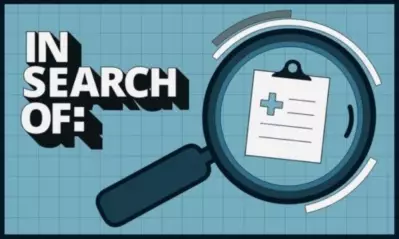What are allied health professionals?
This article was updated on June 3, 2024.

Reviewed by Mark Johannsson, DHSc, MPH, Dean of the College of Health Professions

Allied health is an umbrella term that encompasses a wide variety of assistive and therapeutic services administered by allied health professionals.
Unlike specialists in medicine and nursing, these professionals help deliver health-related services you might find outside of a doctor’s office or hospital. They may work in a clinical setting. They can also work in the fields of public health and public health administration in careers like public health officer and health education specialist, among others. Basically, allied health professionals promote health and wellness in support of patient well-being.
Sometimes, allied health goals are preventive. Other times, they are to restore or maintain a high level of health among a particular subset of patients.
Daily duties of an allied health professional
Allied health professionals handle a variety of responsibilities each day, although their proximity to patients and the community will likely dictate the general nature of what they do. you’re their responsibilities contribute to the overall health of patients and can include the following:
- Take patient vitals — Measure basic bodily functions, including body temperature, pulse and respiratory rate.
- Accommodate disabilities — Practice empathy and sensitivity when speaking with or providing care for patients with disabilities.
- Operate medical technology — Use a medical device when providing patient care.
- Stock medical supplies — Maintain sufficient medical supplies for use during an assessment, test, diagnostic procedure or treatment, or any other phase of patient care, preparation or cleanup.
- Provide corrective or rehabilitative services — Use best practices in offering treatment for patients who have an injury, illness or disability.
- Educate patients — Provide supplementary education to inform patients of their responsibilities in the treatment or recovery process.
The exact tasks you might handle as an allied health professional will depend on your position.
What is the difference between healthcare providers and allied health professionals?
Health practitioners are individuals who have a professional license to provide healthcare services directly to patients; e.g., doctors, dentists, nurses and pharmacists. Allied health professionals are a broad category of healthcare workers who provide support services. They can be physical therapists, occupational therapists, public health workers and more. The primary difference? The scope of practice and services provided.
Generally speaking, education requirements for allied health professionals vary depending on their role within the healthcare system. For many public health-centered roles, a Bachelor of Science in Health Management is often helpful for teaching skills like decision-making and compliance. Online programs, like the one University of Phoenix offers, can help prepare you for a career in management once you feel ready to move on from your current allied health role without sacrificing your career or work-life balance.
Allied health careers in public healthcare
Some allied health careers focus more on leadership and less on patient-facing experiences. For professionals who want to focus heavily on allied health in an administrative or support capacity, consider the following roles:
- Public health administrator
- Public health program manager
- Health education specialist
- Public health officer
- Community health program coordinator
Public health administrator
Public health administrators seek to improve the welfare of their communities. They also run organizations that help promote information about health.
Many public health administrators work in the government sector, although others may be employed by nonprofit or educational institutions.
Most public health administrators have a bachelor’s degree in healthcare administration, although many find a master’s degree is preferable . While not public health specific, healthcare administrators in some sectors earned between $67,900 and $216,750 (median wage was $110,680)
as of May 2023, according to the U.S. Bureau of Labor Statistics (BLS).
Salary ranges are not specific to students or graduates of University of Phoenix. Actual outcomes vary based on multiple factors, including prior work experience, geographic location and other factors specific to the individual. University of Phoenix does not guarantee employment, salary level or career advancement. BLS data is geographically based. Information for a specific state/city can be researched on the BLS website.
Public health program manager
Public health program managers play a crucial role in the healthcare sector by overseeing, planning and implementing public health services and programs. They have broad, multifaceted responsibilities, sometimes managing staff, coordinating public health initiatives and evaluating program effectiveness.
Public health program managers typically have a bachelor’s degree in public health or a related field, but some organizations may prefer candidates to have a master’s degree. Salary data from BLS for public health program managers is not currently available.
Health education specialist
Health education specialists spend most of their time assessing community health needs and devising programs to help meet those needs. They also provide training for community health workers or other healthcare providers. Health education specialists can work in various settings, including hospitals, nonprofits and public health departments.
Most health education specialists have at least a bachelor’s degree in health education or promotion. Some roles require a master’s or doctoral degree. As of May 2023, health education specialists earned between $39,630 and $107,920 annually, with a median wage of $62,860 , according to BLS.
Public health officer
Public health officers act as the face of government agencies or other large institutions, like hospitals, universities and municipal departments. Their job primarily involves sharing information with the public or media during health crises, but other responsibilities include developing guidelines and preparing materials to share specific health information.
Public health officers typically are required to have a relevant bachelor’s degree. Having formal healthcare training and expertise may help as well. It’s difficult to nail down earning potential for this role because of the various job duties it entails. Salaries also heavily depend upon location, training and experience.
Community health program coordinator
Health program coordinators supervise other health workers, including community health workers , and manage and monitor schedules to keep plans on budget and running smoothly. Many coordinators work in areas like clinics, hospitals, long-term care facilities and other community-based organizations.
Typically community health program coordinators have a relevant bachelor’s degree, but other coordinators may have a master’s degree that showcases their accumulated knowledge and skills. As with some positions in public health, it can be difficult to identify the earning potential for this role due to the various duties it entails. Salaries also heavily depend upon location, training and experience.
Learn about education for allied health professionals
Healthcare is a diverse sector with hundreds of direct and supportive roles available. From frontline professionals like nurses to roles administrative support, each career path plays an essential role in maintaining the integrity and efficiency of our healthcare systems.
University of Phoenix can help you gain skills to explore careers in healthcare management . A Bachelor of Science in Health Management
can prepare individuals for rewarding careers in public health as well as hospital administration. To learn more about our full range of healthcare education options, request more information today
.

ABOUT THE AUTHOR
A graduate of Johns Hopkins University and its Writing Seminars program and winner of the Stephen A. Dixon Literary Prize, Michael Feder brings an eye for detail and a passion for research to every article he writes. His academic and professional background includes experience in marketing, content development, script writing and SEO. Today, he works as a multimedia specialist at University of Phoenix where he covers a variety of topics ranging from healthcare to IT.

ABOUT THE REVIEWER
Mark Jóhannsson is the Dean of the College of Health Professions. He has a career spanning over 35 years of healthcare management, public health practice, higher education administration, teaching and clinical/behavioral research within corporate, community and academic settings. He has served as both an educational and keynote speaker, and he has been published in a variety of peer-reviewed and periodic literature.
This article has been vetted by University of Phoenix's editorial advisory committee.
Read more about our editorial process.
want to read more like this?



